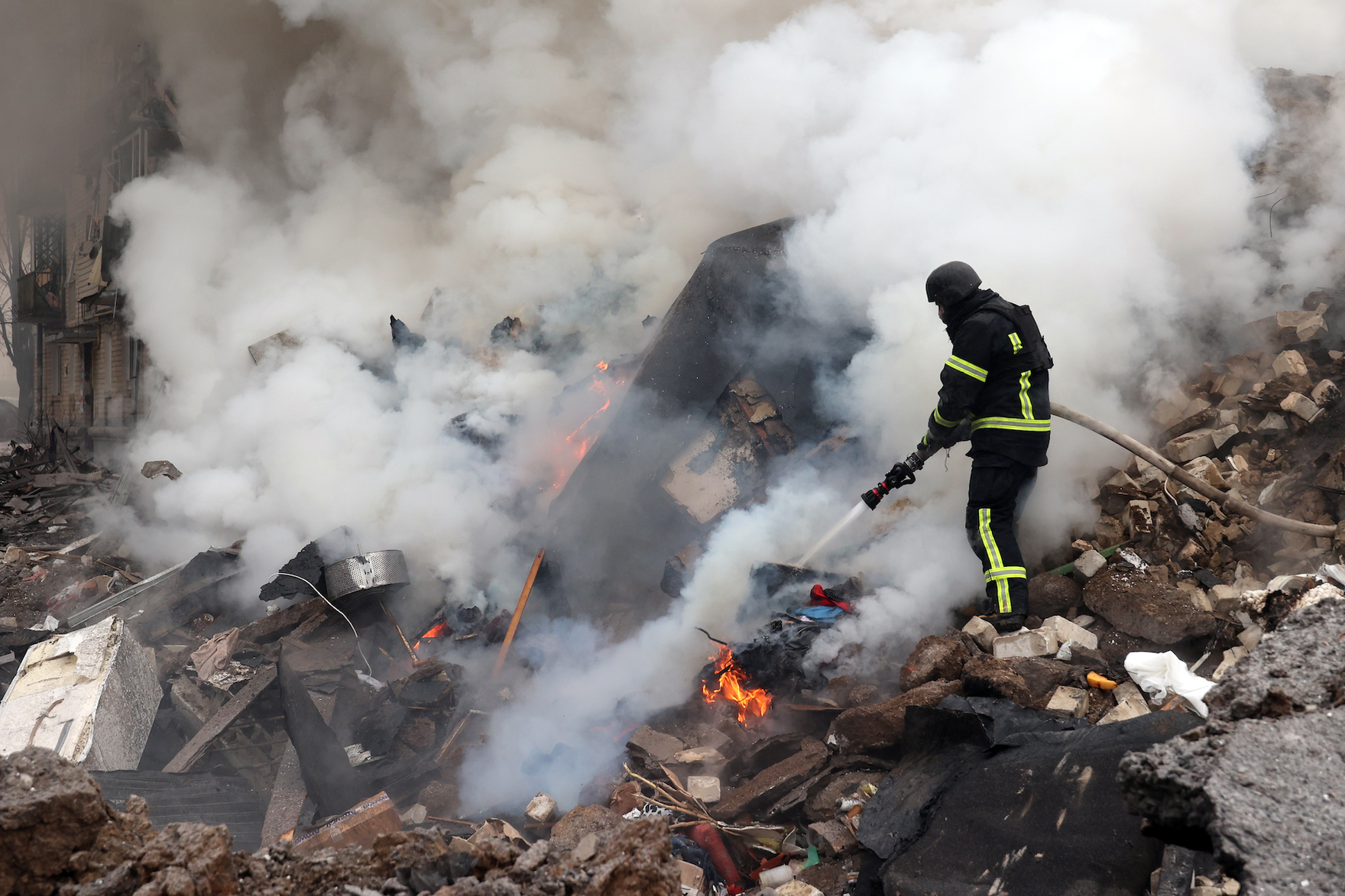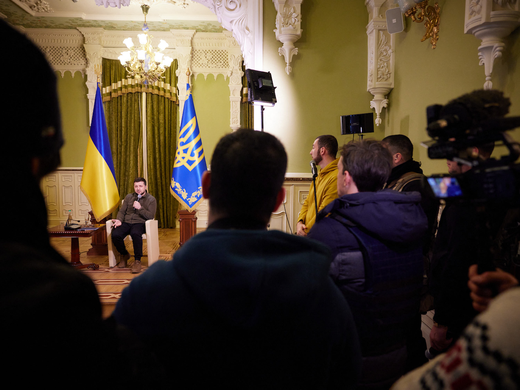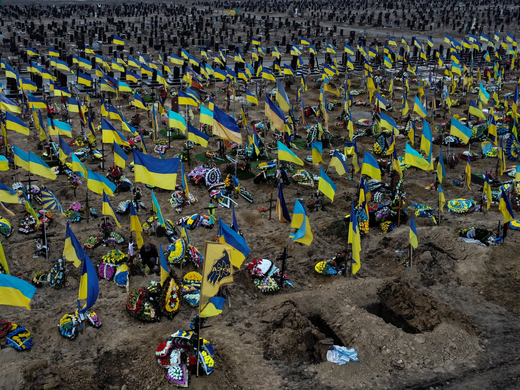The wintry dawn of a third year of the brutal war in Ukraine will soon arrive. The military situation looks bleak. The question is whether 2024 will be a make-or-break year for Ukrainian resistance.
Canada has an important role to play, and a promise to keep, in ensuring that 2024 is not the year that Ukrainian resistance was broken. The promise was made in the aftermath of the North Atlantic Treaty Organization (NATO) summit in Vilnius, Lithuania, last July. It wasn’t the clear path to NATO membership that Ukraine wanted, but in its place was a declaration by the G7 of long-term security assistance to Ukraine.
The G7 declaration was sweeping, promising sustained military equipment aid, support to develop a Ukrainian defence industry base, training, intelligence co-operation and cyber defences. The G7 pledged to strengthen the Ukrainian economy, give it financial assistance and help hold Russia accountable, including through war crimes investigations. Each G7 country’s specific commitments were to be negotiated directly with Ukraine.
The Canadian government launched its security negotiations with Ukraine at the end of August 2023, promising to use “all tools at our disposal to support Ukraine as it defends its sovereignty and territorial integrity.”
Where do things stand? All we know is that a draft was sent to the Ukrainian government for its consideration on January 12. The deal needs more urgency.
What tools are “at our disposal?” The military aid cupboard is bare. Even the effort to buy a desperately needed air defence system, known as a NASAM, for Ukraine from the United States has been plagued by delays since it was announced in January 2023.
But there are other ways in which Canada can sustain Ukraine’s ability to fight on. Some of these we are doing already: military training, cybersecurity assistance and intelligence sharing, including through satellite imagery. Direct and indirect (through export controls and sanctions) financial assistance is ongoing.
What more can and should be done? Here, we have the example of the United Kingdom, which signed its own security assistance deal — the first of any G7 member — with Ukraine on January 12. It provides for a significant increase — of £200 million — in British financial and military aid for Ukraine in 2024, leaving hope that the United States and European Union will overcome their internal disputes and follow suit.
The United Kingdom will also significantly boost Ukraine’s drone warfare capabilities. Beyond these headlines, the 10-year UK-Ukraine pact promised support for long-term deterrence, for the restoration of Ukrainian territorial integrity and for Ukraine’s peace formula.
Canada should follow suit, quickly finalize its own long-term security assistance deal with Ukraine and up its monetary commitment. It could also follow the UK lead in mobilizing the vibrant drone manufacturing and innovation ecosystem in Canada to channel a key intelligence and warfare capability to Ukraine, and to do it quickly. Some Canadian companies, such as Draganfly, have deployed to Ukraine for demining and civilian reconnaissance missions. Much more could be done.
What else? Canada is uniquely positioned to help one vital sector of the Ukrainian economy — agriculture. Both countries are major agricultural producers and exporters. There are strong ties between Ukraine’s grain producers and Canadian farmers, founded on Ukrainian migration to the Prairies at the beginning of the last century.
Canada is uniquely positioned to provide much-needed assistance to ensure an embattled Ukrainian agrarian economy can continue to flourish despite Russian bombardment, occupation and maritime blockade attempts. Help with seed stocks, climate and soil condition monitoring via drones and satellites, demining, grain storage and support for resilient supply chains could all be vastly increased. On the ground, teams of agrarian experts could be deployed.
The deputy head of Ukraine’s president’s office has now called on the other G7 countries to be “much more dynamic” in concluding their bilateral agreements.
A Canada-Ukraine security assistance pact should be a signature Canadian foreign policy measure. It would have the support of Canadians and would help ensure that attention continues to be paid to a conflict that must not be forgotten.
This piece first appeared in the Toronto Star.



